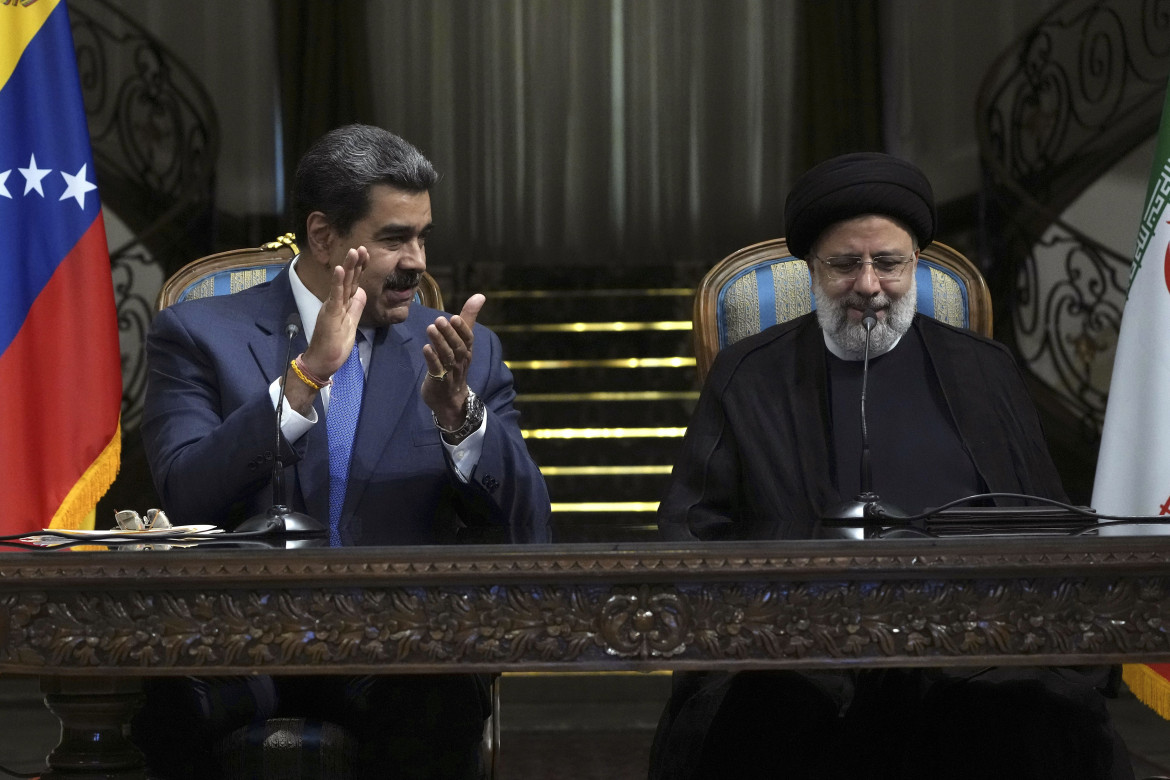Analysis
Gas, food and flights: Tehran and Caracas form an economic alliance
Forced into each other’s arms by American sanctions, Nicolas Maduro met with Ebrahim Raisi in the Iranian capital and signed a cooperation agreement for the next 20 years.

Direct flights between Tehran and Caracas will be operational starting July 18. The idea is “to develop tourism between the two countries, so that Iranian tourists can enjoy the beauties of the Caribbean, the Andes and the Amazon.”
This is what Venezuelan President Nicolas Maduro said Saturday on a visit to Tehran where he arrived after stopping in Turkey and Algeria. With his counterpart Ebrahim Raisi, Maduro has signed a cooperation agreement that will be valid for the next 20 years. Iran and Venezuela are respectively the first and fourth holders of proven oil reserves in the world. Both nations are under embargo, are going through a period of recession, and are experiencing double-digit inflation. Protests over the high cost of living have to some extent delegitimized the governments.
The so-called economy of resistance is not always the answer to difficulties, especially in the case of Venezuela where sanctions have struck where the mismanagement of public affairs by Chavez and then Maduro had already done damage. What’s pushing the two countries into each other’s arms are US sanctions that so far have not triggered regime change in either Tehran or Caracas.
In Iran, the US strategy of maximum pressure has weakened but not destroyed the economy. The subsoil is rich in oil and gas, but hydrocarbons account for less than 10 percent of GDP and therefore the economy does not depend on black gold. Furthermore, with the dramatic devaluation of the rial, Iranian products have become more competitive on international markets.
The agreement signed Saturday indicates “the determination of the authorities of the two countries to strengthen ties in different fields,” said Raisi. Bilateral relations were already excellent at the time of the socialist leader Hugo Chavez (1999-2013) and are now being strengthened with his successor Maduro. Aside from the 20-year global strategic agreement, the details of which have not yet been disclosed, Iran and Venezuela have signed documents on political, economic, oil and petrochemical cooperation.
“Tehran has strengthened its cooperation with Caracas in recent years in the defense, military, energy, overhaul and repair of refinery thermal power stations, technical and engineering services and the economy,” Raisi said.
For a few years, the collaboration between Caracas and Tehran has been evident in various sectors. Starting with the hydrocarbon sector. In 2020, Venezuela had received two shipments of fuel and its derivatives from Iran. In May of that year, President Maduro had used the pretext of buying gasoline from Iran to limit the amount of fuel sold domestically at subsidized prices, and to sell subsequent quantities at international market prices. As the Iranian authorities had already decided in November 2019, a decision that had triggered a series of protests in about a hundred urban centers in the Islamic Republic.
Always in the scope of a long-standing collaboration, in the presidential palace of Raisi the two heads of state witnessed the launch in Venezuela of an oil tanker manufactured in Iran. This is the second delivery of an order of four units.
The collaboration is also active in the food sector, so much so that in an eastern neighborhood of Caracas a huge supermarket sells products from the Islamic Republic. Now, Venezuela will produce food for export to Iran, thus helping to replace supplies previously from Ukraine and Russia.
The price of food is skyrocketing in Tehran because it is always the population that pays the price of sanctions. And the Iranians never miss an opportunity to protest: teachers for low salaries and precarious conditions, pensioners for the high cost of living.
Originally published at https://ilmanifesto.it/benzina-cibo-e-voli-teheran-e-caracas-stringono-lalleanza on 2022-06-12
